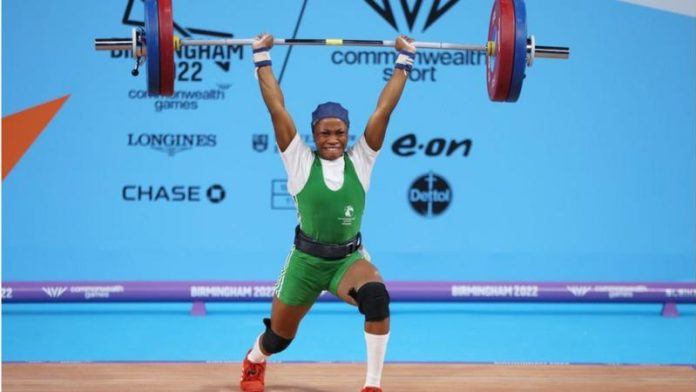In Nigerian society, there is a pervasive stigma surrounding women and weightlifting. Many people believe that lifting weights is a masculine activity that will make women look bulky and unfeminine.
This belief is rooted in gender stereotypes and cultural norms that have long dictated what is considered appropriate for women. However, it is time to challenge these outdated notions and empower Nigerian women to embrace the benefits of weightlifting.
One of the main reasons why women should lift weights is for the numerous health benefits it provides. Weightlifting helps to build strong bones, which is particularly important for women who are at a higher risk of developing osteoporosis later in life.
In fact, a study conducted by the University of Benin Teaching Hospital found that Nigerian women who engaged in regular weight-bearing exercise had significantly higher bone mineral density than those who did not.
Additionally, weightlifting can help women maintain a healthy weight, reduce the risk of chronic diseases like diabetes and heart disease, and improve overall mental health and well-being.
Despite these benefits, many Nigerian women are hesitant to lift weights due to the fear of being judged or ridiculed by others. This is particularly true in a society where traditional gender roles are still deeply entrenched.
Women who engage in weightlifting may be seen as trying to be like men or as going against cultural norms. This can lead to negative comments and discrimination from family members, friends, and even strangers.
However, it is important to remember that weightlifting is not about conforming to societal expectations or trying to look a certain way. It is about taking control of one’s health and fitness journey and doing what is best for one’s body and mind.
Nigerian women who have embraced weightlifting have found that it not only improves their physical health but also boosts their confidence and self-esteem.
Onyeka Azike, a Nigerian weightlifter and gold medalist at the 2007 All Africa Games, has become a role model for women in the sport despite facing criticism from some who believe weightlifting is unsuitable for women.
Many young girls fear they may not be able to have children due to the intense training and muscle building involved.
However, Azike remains dedicated and encourages young women to pursue weightlifting, emphasizing that many female weightlifters have won laurels for their country and have also become mothers. She credits her success to the positive relationship with her coaches and their comprehensive training on ethics.
As a role model, Azike aims to inspire women to take up weightlifting not just for medals but also for health and strength. She urges aspiring female weightlifters to remain objective, committed, and undiscouraged by negative stereotypes surrounding the sport.
To overcome the stigma surrounding women and weightlifting in Nigerian society, it is important to educate people about the benefits of the sport and to challenge gender stereotypes.
This can be done through social media campaigns, community outreach programs, and partnerships with fitness organizations and gyms. It is also important to celebrate the achievements of Nigerian women who have excelled in weightlifting and to showcase their stories as examples of what is possible.
In conclusion, the stigma surrounding women and weightlifting in Nigerian society is a barrier that must be broken down.
By empowering women to embrace the benefits of weightlifting and challenging gender stereotypes, we can create a more inclusive and supportive fitness community in Nigeria.
As Onyeka Azike and other trailblazing women have shown, weightlifting is not just a man’s sport – it is a powerful tool for women to take control of their health and well-being.


